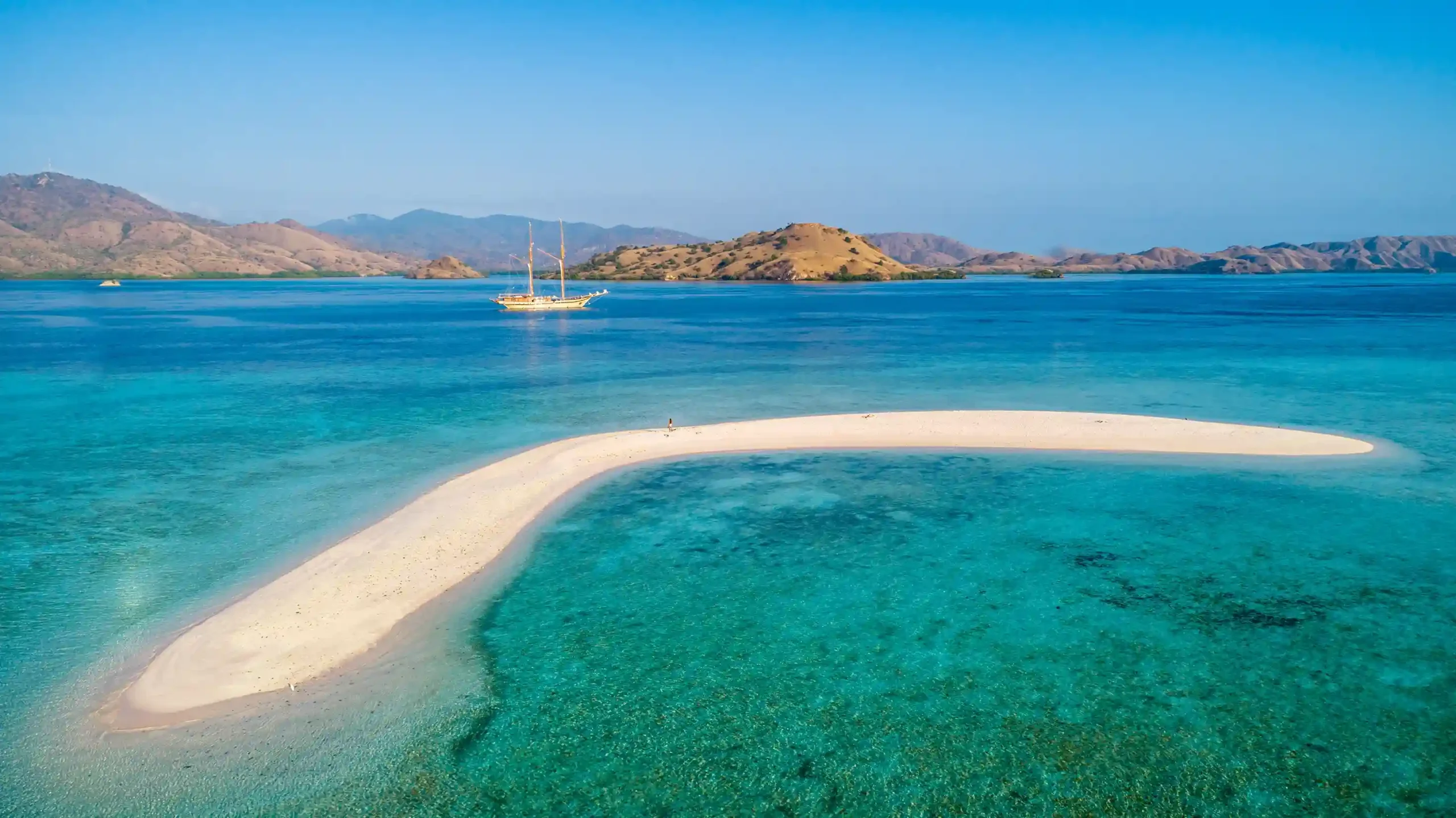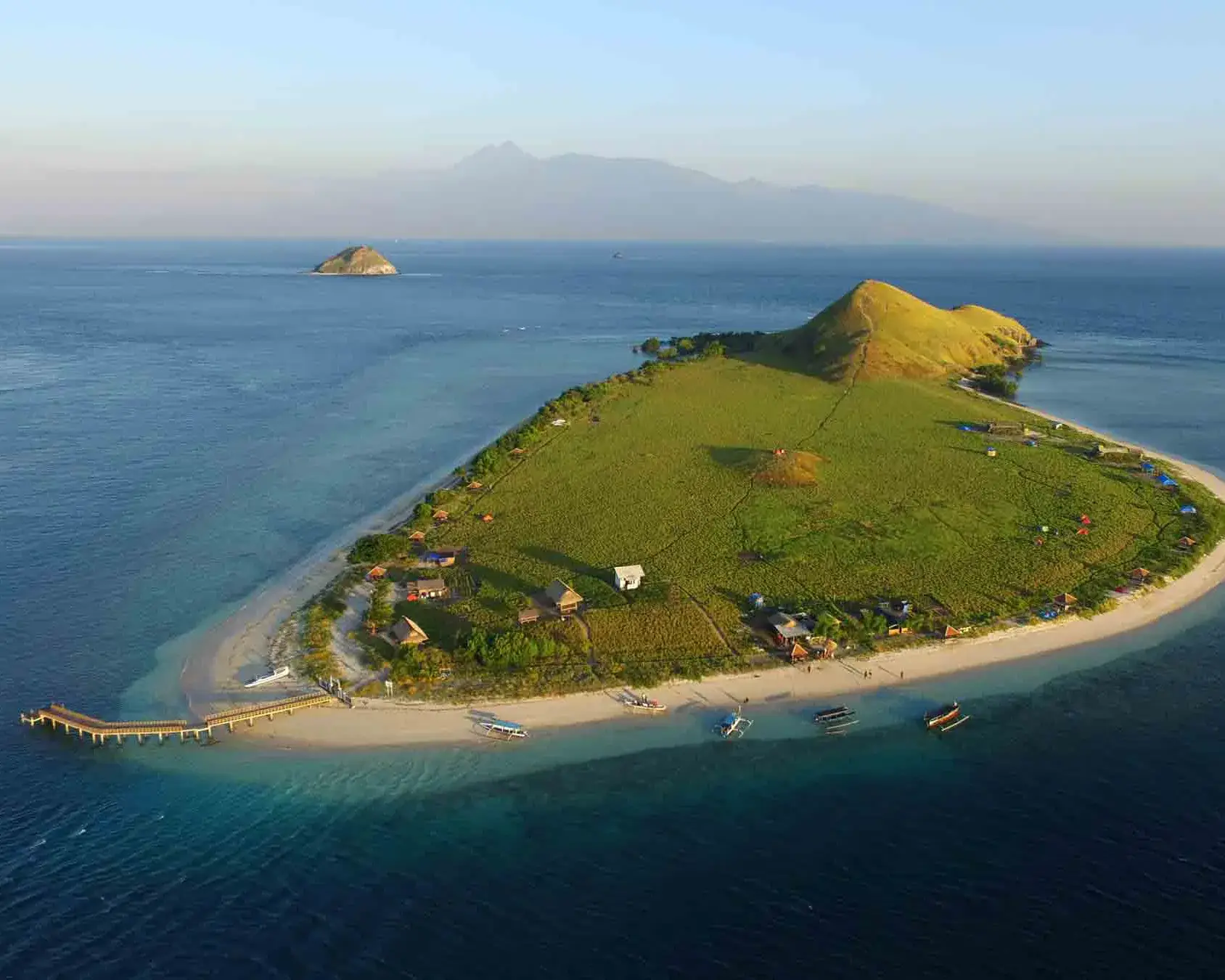Introduce Sumbawa as a hidden treasure within Indonesia’s West Nusa Tenggara province, rich in culture and resources. Start by describing its strategic location between the bustling islands of Bali and Lombok, making it a perfect gateway to the Indonesian archipelago. Highlight its unspoiled natural beauty, featuring white-sand beaches, vibrant marine life, and mountainous landscapes.
Segue into the island’s economic potential by discussing the region’s transformation into an emerging market. Mention government-led infrastructure projects, sustainable development initiatives, and policies aimed at fostering foreign investment. Include data points, such as population growth rates or GDP statistics, to substantiate Sumbawa’s investment promise.


Build a strong case for investing in Sumbawa by elaborating on three core pillars
Sumbawa’s location places it at the heart of Indonesia's growing economy, with easy access to major domestic and international markets. Highlight the proximity to Lombok International Airport and future transportation developments, such as upgraded seaports and highways, to showcase the region’s logistical advantage.
Illustrate the abundance of Sumbawa's natural resources—fertile land for agriculture, expansive mineral deposits, and thriving marine ecosystems. Use specific examples, such as the island’s potential for cashew nut exports or its rich deposits of gold and copper, to draw attention.
Detail the government’s commitment to easing business processes through incentives, simplified regulations, and investment guarantees. Include examples of programs designed to attract foreign investors, like tax breaks or public-private partnerships in key sectors.

Sumbawa is a dream destination for eco-tourism enthusiasts and cultural explorers. Highlight the potential for developing eco-friendly resorts that align with global trends toward sustainable tourism. Mention the island’s surfing hotspots, like Lakey Beach, which attract international surfers, as well as opportunities to create adventure tourism experiences, such as hiking Mount Tambora.
Cultural tourism is another untapped market. Discuss how showcasing traditional villages, local crafts, and indigenous ceremonies could attract travelers seeking authentic cultural experiences. Include projections of tourism growth in Indonesia to emphasize market potential.
Focus on Sumbawa’s fertile soil and suitable climate for cultivating high-demand crops, including rice, corn, soybeans, and cashews. Dive deeper into opportunities in organic farming and discuss the region’s potential to export premium agricultural products globally.
Livestock farming is another strong opportunity. Highlight Sumbawa’s reputation as a top beef-producing region and discuss potential collaborations with global markets in the halal food industry. Mention existing government programs that support modernized farming methods and export capabilities.


Position Sumbawa as a leader in aquaculture and sustainable fishing. Describe the booming market for shrimp farming, with export demand driven by countries like China and Japan. Discuss opportunities in seaweed cultivation, a high-margin industry fueled by growing demand for plant-based products.
Sustainable fishing practices can position Sumbawa as a global example of environmentally responsible resource management. Illustrate the benefits of modernizing fleets and infrastructure to ensure high-quality exports.
Describe Sumbawa’s suitability for renewable energy projects. Its consistent solar irradiance and strong wind currents make it an excellent location for solar and wind farms. Discuss the government’s emphasis on renewable energy policies, subsidies, and potential collaborations for public-private initiatives.
Include the opportunity for geothermal energy development, leveraging the island’s volcanic terrain, to attract energy companies looking for scalable solutions.

Focus on the real estate opportunities driven by population growth and an increasing expatriate community. Highlight projects like residential housing developments for locals and expatriates, as well as commercial properties to support retail and business activities.
Discuss urban centers like Bima, which are ripe for modern retail and office spaces, and emphasize the potential for luxury developments in scenic coastal areas.
Feature stories of investors who have found success in Sumbawa, showcasing their industries, challenges, and outcomes. For example, describe a renewable energy company that set up solar farms or a hospitality group that developed an eco-resort. Add testimonials that highlight positive experiences with Sumbawa’s business environment and local workforce. Use visuals like before-and-after project images or video interviews to build credibility.
Provide a breakdown of the incentives offered to investors, such as tax holidays, reduced import duties, and land ownership rights for foreign businesses. Include a section on public-private partnership opportunities for infrastructure and utility development. Use clear, actionable language, and provide links to government resources for further details.
Discuss the island’s improving infrastructure, including upgraded ports, expanded highways, and improved telecommunications networks. Highlight planned projects, such as new airport terminals or rail lines, which enhance accessibility and logistics. Emphasize the availability of essential utilities like water and electricity, which are crucial for businesses.
Walk potential investors through the process of investing in Sumbawa. Include a clear, step-by-step guide covering legal requirements, necessary documentation, and application timelines. Provide practical tips for working with local businesses and navigating cultural differences. Offer a downloadable PDF guide for easy reference.
© Invest Sumbawa 2025 – Empowering Sustainable Growth and Opportunities in Sumbawa